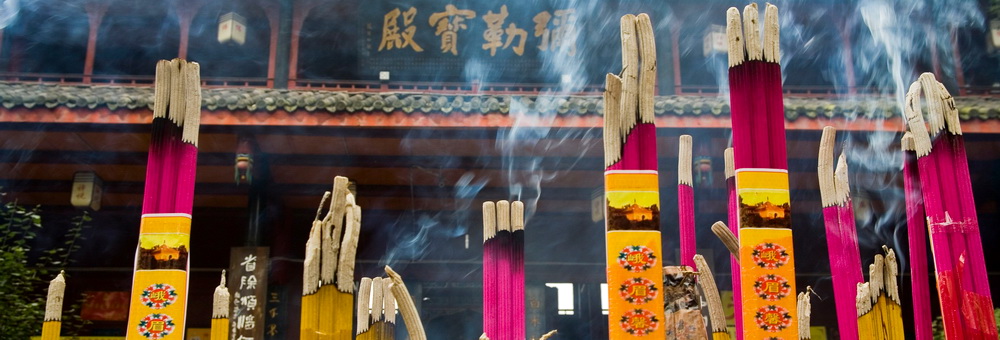
 China Tours
China Tours Tibet Tours
Tibet Tours China Theme Tours
China Theme Tours Off The Beaten Track
Off The Beaten Track Yangtze Cruises
Yangtze Cruises China Trip Planner
China Trip Planner Travel Agents
Travel Agents


We had a wonderful time in Tibet. We have learned a lot about this unique destination because of the wonderful guide Degyi who is so knowledge and always available towards our tours. We stayed at the Shangri-La Hotel Lhasa, and we would never imagine a Tibet travel could be so nice and amazing without the help of Degyi.
Also, thanks a lot to our Tibetan driver Mr.Wongdun for his safe driving and a good sense of service along the way.
We shall return Tibet in the near future!
P.B. and A. A - Europe
Tibet Travel
June 2018 (Private Tibet Journey from Kathmandu)

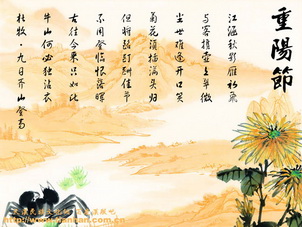 China is a country with many ethnic groups and a rich cultural heritage. The Chinese Festivals occur throughout the Lunar year. As the world calendar year and the Lunar year is different, the festivals fall on different dates each year. Each festival is rich on tradition, excitement and participation. Chinese Festivals are a very important part of Chinese tradition. The particular festivals discussed here are of special interest to the young and knowing a bit more about them will help you enjoy and to participate in these magic celebrations.
China is a country with many ethnic groups and a rich cultural heritage. The Chinese Festivals occur throughout the Lunar year. As the world calendar year and the Lunar year is different, the festivals fall on different dates each year. Each festival is rich on tradition, excitement and participation. Chinese Festivals are a very important part of Chinese tradition. The particular festivals discussed here are of special interest to the young and knowing a bit more about them will help you enjoy and to participate in these magic celebrations.The Spring Festival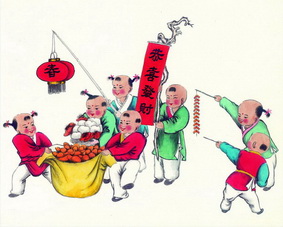
The Spring Festival, also known as the Lunar New Year, is the most important traditional festival in China, Which takes place in late January or early February. The historical reason for beginning the year during cold weather is that it is the time between the "autumn harvest and winter storage" and "spring plowing and summer weeding". In other words, this is the time for rest and relaxation after a year's toil and for celebration as well.
In addition to the practical reasons of having the Spring Festival during the cold months, a Chinese folklore offers another explanation. According to Chinese legends, a demon called Nian would torment people once a year during the winter. The people gathered to discuss how to deal with Nian. Some people suggested that the demon was for of the red color, flames and loud noises. So they put red couplets on their gates, set off firecrackers and beat gongs and drums to drive Nian away. Their ideas worked and Nian fled. Thus, the customs of celebrating the Spring Festival were born and passed down.
During the month of January or February, Chinese families clean their houses, set off firecrackers, post pictures of the Door God and couplets on their gates. On the eve of the Spring Festival, it is a folk custom to stay up late or all night to pray for peace and prosperity in the coming year. The new year is ushered in at midnight. A get-together banquet is usually a must for every Chinese family. The most popular food enjoyed by both the rich and poor is Jiaozi, or dumplings, which is supposed to bring good fortune. On the first day of the new year, everybody wear new clothes and greets relatives and friends with bows and gongxi (congratulations), wishing each other the best during the new year.
In recent years, the Spring Festival has become a public holiday. People usually have several free days for attending family dinners, traveling, going to the movies or concerts or just watching holiday special TV programmes.
The Lantern Festival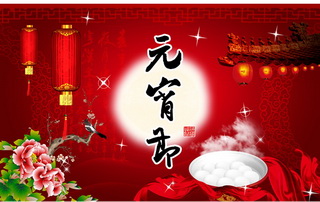
The fifteenth day of the first lunar month is also an important traditional festival in China where various types of lanterns are exhibited. Lanterns are in different shapes and colors. They are made of paper, gauze, silk or plastic in the shapes of fish, frog, horses, rabbits, roses, lotus flowers, or even gods. Each year's lantern exhibition takes one animal as the theme, the animal which is designated by the Chinese lunar calendar for the year. For example, in the Year of Dragon, the dragon-theme lanterns are seen everywhere. The lantern exhibition is a custom that has persisted throughout history. In recent years, the increase in living standards has led to various splendid lantern exhibitions all over the country.
Such occasions are colorful and present picture-perfect-scenes with the bright moon shining down on hundreds of colorful lanterns. In addition to lantern exhibitions, the Lantern Festival includes plays, firework displays, acrobatics and dances. The dances are always Chinese and traditional: dragon dances, lion dances, boat dances and lotus dances.
Traditionally, every family eats yuanxiao on the night of the Lantern Festival. Yuanxiao, a symbol of family unity, affection and happiness, is glutinous, rice-flour dough stuffed with sweet stuffing such as sugar and bean paste. Therefore, the Lantern Festival is also called the Yuanxiao Festival. Apart from yuanxiao, people have a grand dinner to mark the end of the Spring Festival celebrations.
The Dragon Boat Festival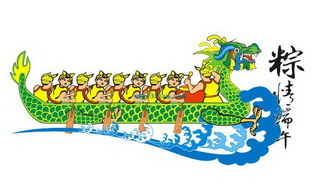
The Dragn Boat Festival, or the Duanwu Festival, falls on the fifth day of the fifth lunar month. This Festival is widely accepted as a day to commemorate Qu Yuan, China's greatest poet of the Warring States Period(475B.C. - 221 B.C.). People respected Qu Yuan for his efforts to make State of Chu strong and prosperous and for his dedication to such ideals. However, he became frustrated with the status quo and ultimately committed suicide by drowning himself in the Miluo River. On the day of Qu Yuan's death, people rushed from all over, rowing boats on the river in an attempt to find his remains, which were thought to have drifted downstream, never to be recovered. But people never give up their hope. This time every year, rowing a fast stroke, they wanted to be the first one to find him. As the result, beat-racing has become very popular along the waterways in many southern and eastern cities and towns. On the day of the festival, boats are decorated in the shape of a dragon, with a drum and a gong on each boat to set the pace.
Sometimes foreign friends would come to compete with the Chinese team in strength, teamwork and rowing skills. As part of the festival, people throw rice-filled bamboo tubes into the river as an offering. During the Duanwu Festival, it is also a common practice to eat zongzi, which is a rice pudding wrapped up with reed leaves. The reed leaves give a special flavor to the food.
Commemoration of Qu Yuan during the Duanwu Festival shows his popularity as a poet and man who made great contributions to his motherland. In l957, Qu Yuan was selected by the World Peace Council as one of the four cultural figures to be memorized by the world.
The Mid-autumn Festival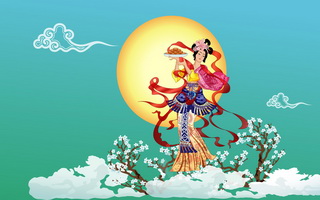
The Mid-autumn Festival falls on the fifteenth day of the eighth lunar month because the eighth lunar month is mid-autumn and the fifteenth is the middle of that month. On that night the moon is supposed to be brighter and fuller than any other night. In China, a full moon is symbolic of family reunion, which is why that day is also known as the "Day of Reunion".
In ancient China, the moon was considered by scholars as a symbol of brightness, purity, and goodness. Poets of the past wrote many beautiful odes to the moon. Not only was the moon an inspiration to writers but it was also a source of many myths and legends.
The most popular myth was a story about a woman named Chang E who flew to the moon and lived about Moon Palace with trees and flowers around. It is believed that she is now happy about the leisure and tranquility on the moon. But from time to time she is missing the earthly life.
During this festival, people eat the moon cake, which is made of wheat flour and sweet stuffing such as sugar and lotus seed powder. The festival is a time for families to gather to burn incense and eat fruits in addition to the moon cake. The cake is traditionally cut into pieces that equal the number of people in the family. Watching the moon is an important part of the Mid-autumn Festival celebrations. At night, people stay out and admire the beauty of the full moon, eating the Moon cakes. Delighted by the serenity and tranquility, some people begin to sing classic songs and recite well-known verses. While tradition abounds during this festival, the essence of this festival is the harmony and happiness of family life, which is something that can be understood by all.
Qingming Festival (Tomb Sweeping Day)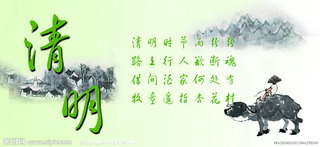
The Qingming Festival is celebrated in April and is known as "Remembrance of Ancestors Day". This day is devoted to honoring relatives who died. Thousands of Chinese visit cemeteries to clean the graves of their loved ones. The Chinese hold great respect for their ancestors and the young are taught to pray to, and for, the family spirits. Young people accompany their parents to the gravesite and help in the cleaning process. Because many graves or crematoriums are located in remote locations, and sometimes a family has more than one grave to visit, a trip to clean and pray at ancestral graves during Qingming can be a trip at the crack of dawn and to end only late at last light.
Many times, this is an entire family trip, whereby parents will share the value of Qingming with their young children and impressing onto them the Chinese tradition of honoring their ancestors.
Double Ninth Festival (Chongyang Festival)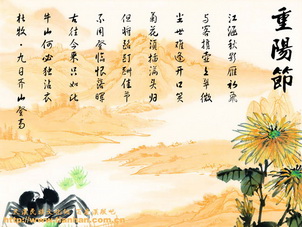
The 9th day of the 9th lunar month is the traditional Chongyang Festival, or Double Ninth Festival. The festival is based on the theory of Yin and Yang, the two opposing principles in nature. Yin is feminine, negative principle, while Yang is masculine and positive. In ancient times people believed that all natural phenomena could be explained by this theory. Numbers were also related to this theory. Even numbers belonged to Yin and odd numbers to Yang. The ninth day of the ninth lunar month is a day when the two Yang numbers meet. So it is called Chong Yang. Chong means double in Chinese. Chong Yang has been an important festival since ancient times.
Climbing a mountain, carrying a spray of dogwood and drinking chrysanthemum wine are the traditional activities of the Double Ninth Festival, to avoid evil spirits and misfortunes. The festival is held in the golden season of autumn, at harvest-time. The bright clear weather and the joy of bringing in the harvest make for a festive happy atmosphere. The Double Ninth Festival is usually perfect for outdoor activities. Many people go hiking and climbing in the countryside, enjoying Mother Nature's final burst of color before she puts on her dull winter cloak. Some will carry a spray of dogwood.
Chinese Valentine's Day (Double Seventh Festival)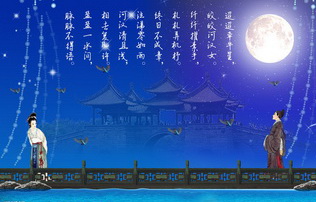
Falling on the seventh day of seventh lunar month, the Double Seventh Festival is also known as the Chinese Valentine's Day.
This festival is in mid-summer when the weather is warm and the grass and trees reveal their luxurious greens. At night when the sky is dotted with stars, and people can see the Milky Way spanning from the north to the south. On each bank of it is a bright star, which see each other from afar. They are the Cowherd and Weaver Maid, and about them there is a beautiful love story passed down from generation to generation. Long, long ago, there was an honest and kind-hearted fellow named Niu Lang (Cowhand). His parents died when he was a child. Later he was driven out of his home by his sister-in-law. So he lived by himself herding cattle and farming. One day, a fairy from heaven Zhi Nu (Weaver Maid) fell in love with him and came down secretly to earth and married him. The cowhand farmed in the field and the Weaver Maid wove at home. They lived a happy life and gave birth to a boy and a girl. Unfortunately, the God of Heaven soon found out the fact and ordered the Queen Mother of the Western Heavens to bring the Weaver Maid back. With the help of celestial cattle, the Cowhand flew to heaven with his son and daughter. At the time when he was about to catch up with his wife, the Queen Mother took off one of her gold hairpins and made a stroke. One billowy river appeared in front of the Cowhand. The Cowhand and Weaver Maid were separated on the two banks forever and could only feel their tears. Their loyalty to love touched magpies, so tens of thousands of magpies came to build a bridge for the Cowhand and Weaver Maid to meet each other. The Queen Mother was eventually moved and allowed them to meet each year on the 7th of the 7th lunar month. Hence their meeting date has been called "Qi Xi" (Double Seventh).
In ancient times, the double seventh day was an important festival for young women and young girls. No matter poor or rich, they would put on their best clothes and place an incense burner in the courtyard and lay out some fruit as offerings. Then all the girls in the family would kowtow to Niulang and Zhinu and pray for ingenuity.
Nowadays, some Chinese young people still celebrated it as Valentine's Day in China, though more others favored Western Valentine's Day, a great day to express love between lovers.
China Trip Planner | Travel Agents | About Us | Why Us | Contact Us | How to Pay | How to Book - Terms & Conditions | Site Map
Copyright © 2010 - 2030 All Rights Reserved.


 0086-28-85711328
0086-28-85711328 0086-28-85546015
0086-28-85546015
